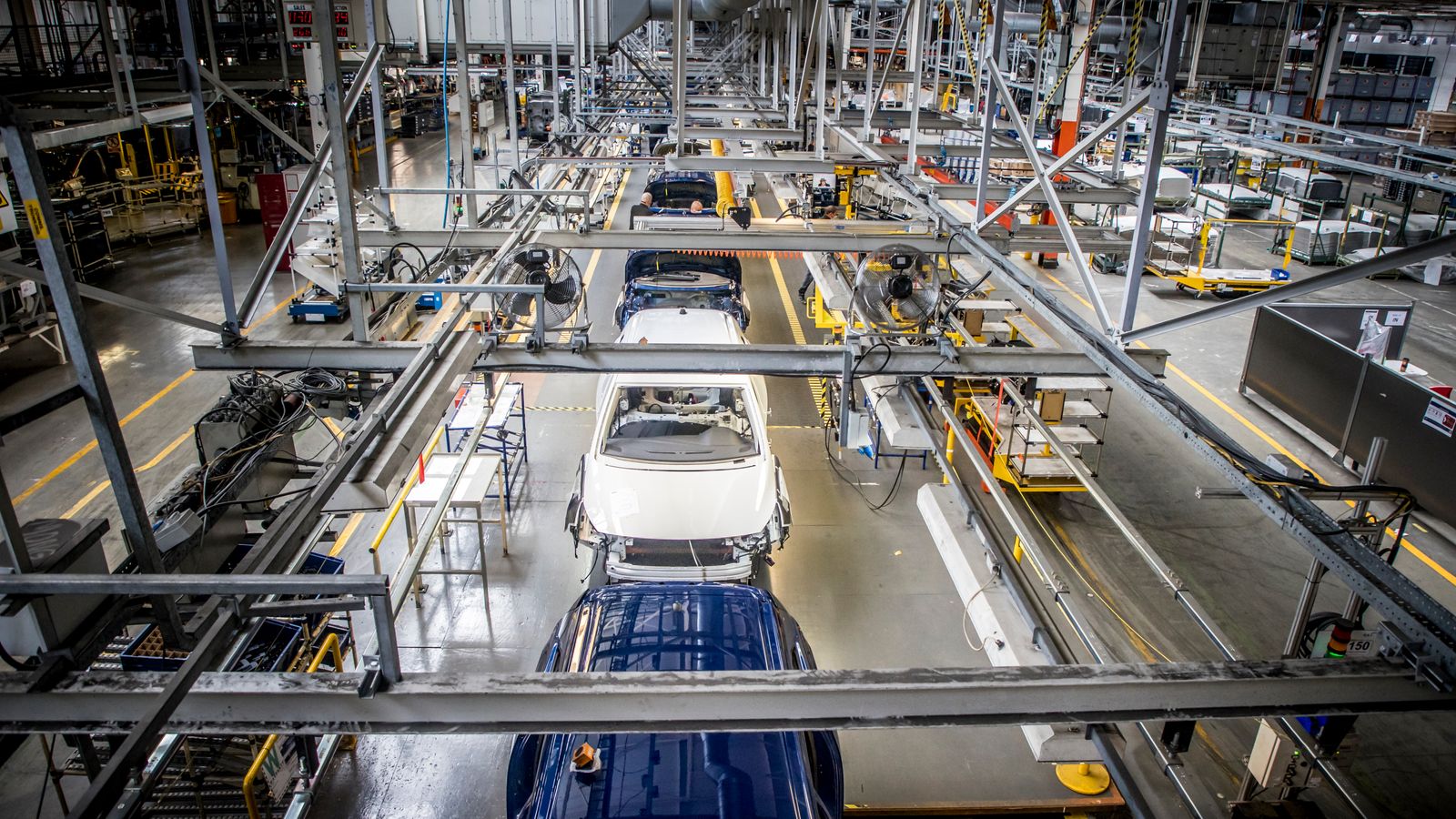The car industry has joined calls for the government to bring forward the date for exempting fully vaccinated adults from coronavirus self-isolation rules following a slump in production, partly blamed on the so-called “pingdemic”.
The Society of Motor Manufacturers and Traders (SMMT) reported that up to 30% of workers in supply chain firms were in quarantine as a result of being advised, via the NHS COVID-19 app, to self-isolate.
It said the effects of the global chip shortage also continued to place a severe dent on manufacturing during June.
Britain’s biggest carmaker, Jaguar Land Rover, predicted earlier this week that the lack of chips would deteriorate in the coming months – potentially knocking output by up to 50%.
Please use Chrome browser for a more accessible video player
UK factories, the SMMT said, produced just 69,097 vehicles last month.
In historical terms, it would have been the lowest June figure since 1953 but for the same month last year when the industry was trying to find first gear following the original national lockdown, the body calculated.
It said just shy of 499,000 cars rolled off production lines over the first six months of the year – a 38% decline on the five-year average.
The SMMT said the gulf represented a loss worth £8.5bn.
Production of battery electric (BEV), plug in hybrid (PHEV) and hybrid electric (HEV) vehicles accounted for almost one in four of all cars built.
It is a rate that will only accelerate as the clock ticks down to the government’s ban on the sale of new petrol and diesel-powered cars from 2030.
The SMMT welcomed £600m of new investment by manufacturers during the first half of the year, which included a new battery plant for Nissan’s sprawling Sunderland site and confirmation that the Ellesmere Port plant would have a new future under Vauxhall’s parent firm.
Please use Chrome browser for a more accessible video player
SMMT chief executive, Mike Hawes, said: “While the UK automotive industry continues to suffer the effects of the global pandemic, with first half year production down significantly and a tough few months looming, the sector has the capability to recover.
“The latest investments into new models and battery production show a bright future is within reach, yet the industry still faces headwinds most notably from global semiconductor shortages and staff absenteeism as a result of staff being ‘pinged’.
“Businesses have ensured their facilities are Covid secure but urgent action is needed, such as bringing forward the 16 August target date for exempting fully vaccinated adults from self-isolation and introducing a ‘test to release’ scheme to support those employees not yet fully vaccinated.”
A government spokesperson responded: “Self-isolation remains an essential tool in our national efforts to reduce the spread of COVID-19.
“We are working closely with businesses to help them understand how the exemption for named, critical workers operates and what to do if their staff are eligible.
“This is a short-term and highly focused measure intended to apply only in exceptional circumstances, with the core purpose of preventing significant harm to public welfare as a result of disruption to critical services.”






















